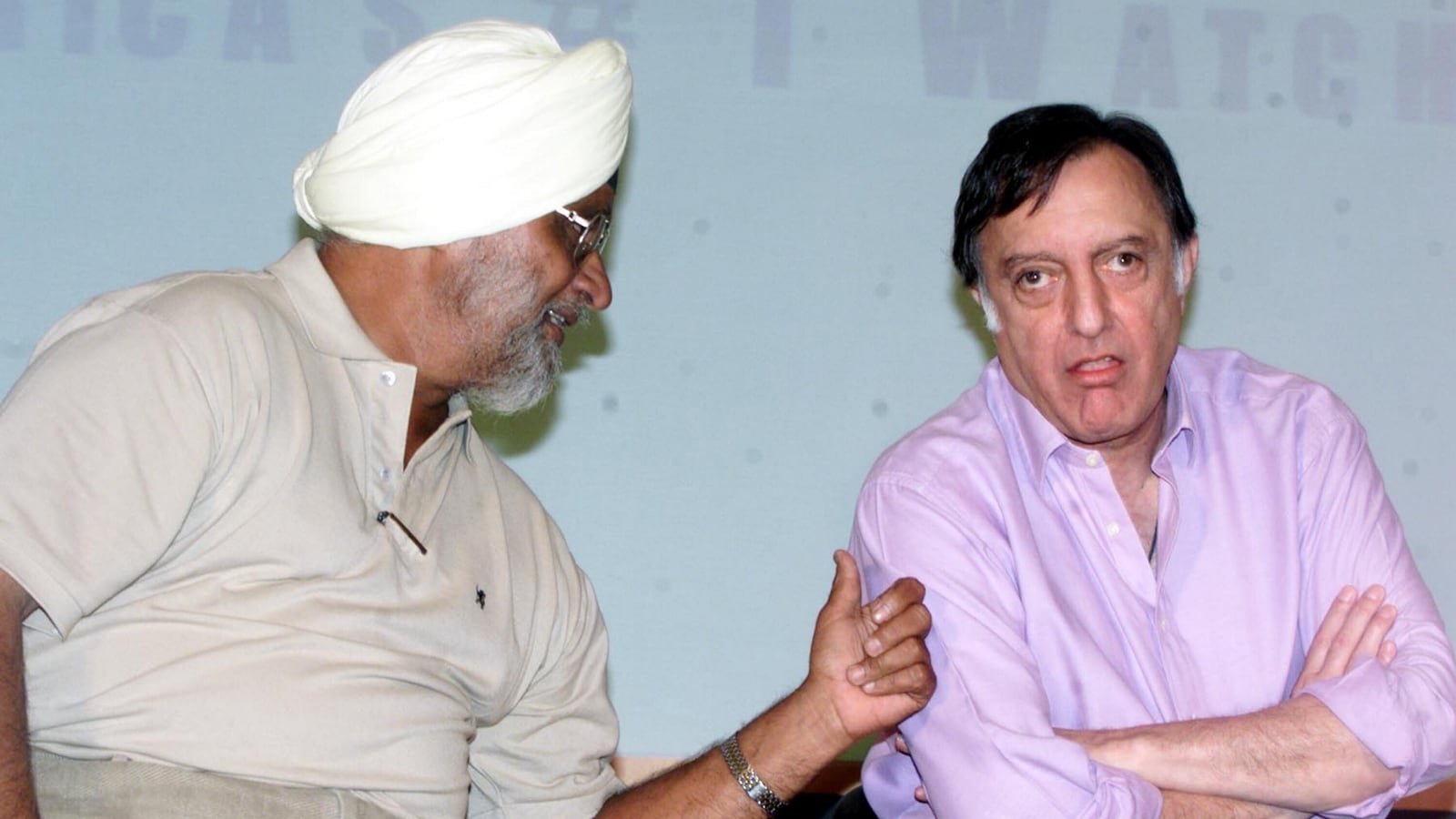Cricket
Bedi was a conscience keeper that the game badly needed | Cricket
[ad_1]
If Bishan Singh Bedi was not the greatest left-arm spinner in the history of cricket, he was certainly the most eye-catching. The colourful ‘patkas’ he wore made him instantly recognisable wherever he played. Easygoing and friendly with a gregarious sense of humour, he was much-loved and sought after all over the cricket world.

For the more discerning, there were other traits too that made him distinctive. His languid action — economical, graceful, almost like poetry in motion – was a connoisseur’s delight. And he played with a smile which (alas!) is all too rare at the highest level of the game.
But it was not just in elevating the aesthetics of the game that Bedi is best remembered. Above all was what he did with the ball. Statistics are not necessarily the best measure of a player’s greatness, but Bedi’s career figures bespeak his mastery.
He has 266 wickets in 67 Tests a whopping 1560 in 370 first-class matches. This doesn’t find easy parallel. In fact, coupled with his bowling average and economy rate – in both Tests and first-class – they reveal a maestro.
Bedi was some months shy of 21 when he made his Test debut, against the West Indies in 1966-67, and made an immediate impact, earning comparisons with the great Vinoo Mankad. Over the next dozen-odd years, he was to fulfil the early promise and become India’s leading wicket-taker.
Advice and support from his first captain Mansur Ali Khan Pataudi helped Bedi make rapid strides, as he widely and frequently acknowledged. It was Pataudi who helped him discover the joy and satisfaction of being an attacking bowler, even at some risk, than being just a defensive run saver.
Pataudi redefined Indian cricket with his thrust on spin and emphasis on close-in fielding. Along with Bedi, he had B S Chandrasekhar and EAS Prasanna as regulars in the side, and occasionally S Venkataraghavan too. This quartet was of gold standard and left an indelible impression on Indian cricket.
In 1970-71, successive series wins over West Indies and England – both overseas — defined an epochal phase in Indian cricket that has yet to be equalled. The magic of Indian spin – spicy, pungent, deceptive and destructive – got international renown through the exploits of these four bowlers, with Bedi as the pivot.
Bedi’s understanding of his craft was highly evolved and nuanced.
Classically orthodox with strong fingers, wrist and shoulder, he could make the ball spin, rip, swerve on the most unfriendly pitches. This ability wouldn’t be half as useful without control, of course, and Bedi’s was exemplary.
His success was built around his immense skills and an acute understanding of a batsman’s psychology. He loved to joust with batsmen, especially those with high ability, challenging them to a battle of wits that made for delightful watching.
More often than not, he came out on top. The loop, spin and variations in pace and flight were allied adroitly with guile and cunning, made the best of them dance to Bedi’s tune, like puppets on a string.
When they didn’t and got his better, he would be the first one to applaud his rivals, often to the chagrin of his own teammates. But Bedi argued that the spirit of cricket, not the outcome of individual or team rivalries, was supreme.
However, this did not mean he was namby-pamby. He was quick to confront – sometimes in the extreme – when he found that the opposition was in breach of the spirit of cricket and taking undue advantage.
By the mid-1970s, Bedi was captain of the Indian team and proved to be a forceful personality, speaking up for fellow players and matters related to the game with a bluntness that often rubbed authority the wrong way, sometimes cost his team a match, but earned him respect for his views nonetheless.
In the Kingston Test in 1975-76, he closed India’s second innings with five wickets still remaining when West Indies launched a bouncer barrage to prevent a series loss. Bedi not only wanted to protect his lower order batsmen but thought West Indies unsportsmanlike. India lost the Test.
In 1976, against England at Madras, he rallied behind umpire Judah Rueben who reported left-arm pace bowler John Lever for tampering the ball with Vaseline, concealed in a gauze on their eyebrows. This was to cost him his County contract as the Engish authorities took umbrage.
In 1978, in a one-day international at Sahiwal, he conceded the match in protest against the short-pitched bowling by the Pakistani pacemen that gave the batsmen no chance of playing the ball. This was much before the rules that govern ODIs now came into place.
Bedi’s career ended with the Oval Test in 1979, prematurely by today’s standards since he was barely 33 then. But after the debacle against Pakistan in 1978, the winds in Indian cricket had changed direction and he was always on slippery ground.
Old partners Prasanna and Chandrasekhar retired and Bedi was axed from the captaincy. This perhaps caused his own interest to wane too and he called it a day. It was not the happiest of circumstances in which to leave, but this did not diminish his greatness a whit. Nor his gregarious sense of humour or passion for the game.
His involvement with Indian cricket didn’t finish with his playing days. At various times he had been selector, coach and administrator. He got mixed results but was never short on intent, even though this often meant getting in the crosshairs of other stalwarts.
Unbending in his belief that the spirit of cricket was paramount, Bedi remained a trenchant critic of the wholesale commercialisation of the game, the diminishment of Test cricket and the pusillanimity of those in power in upholding its laws, as in the case of penalising ‘chuckers’, for instance. He was a conscience keeper that the game badly needed. Cricket now has to find another.
[ad_2]


















